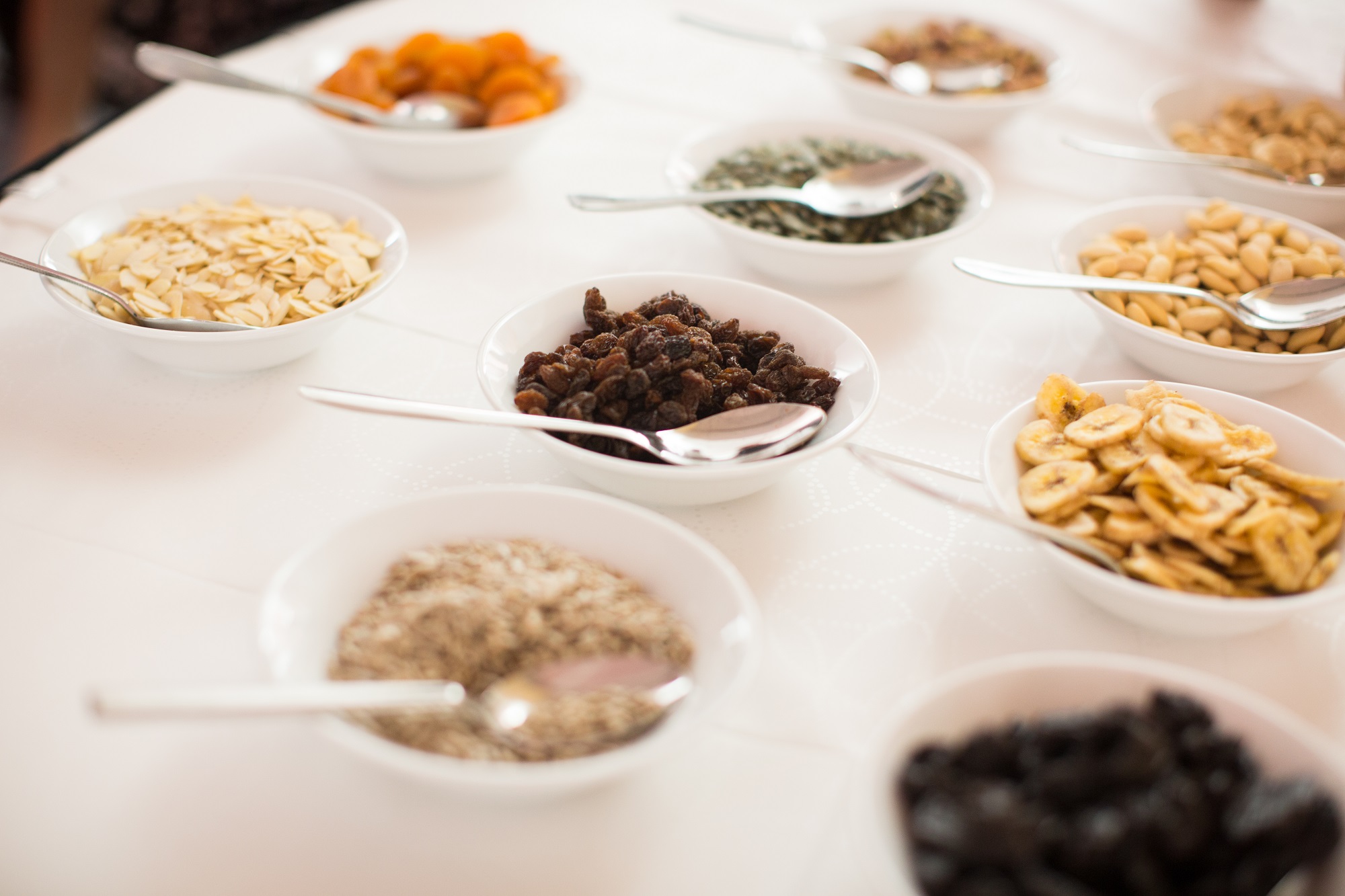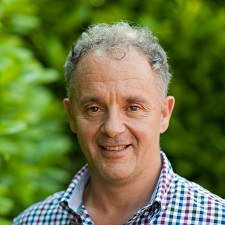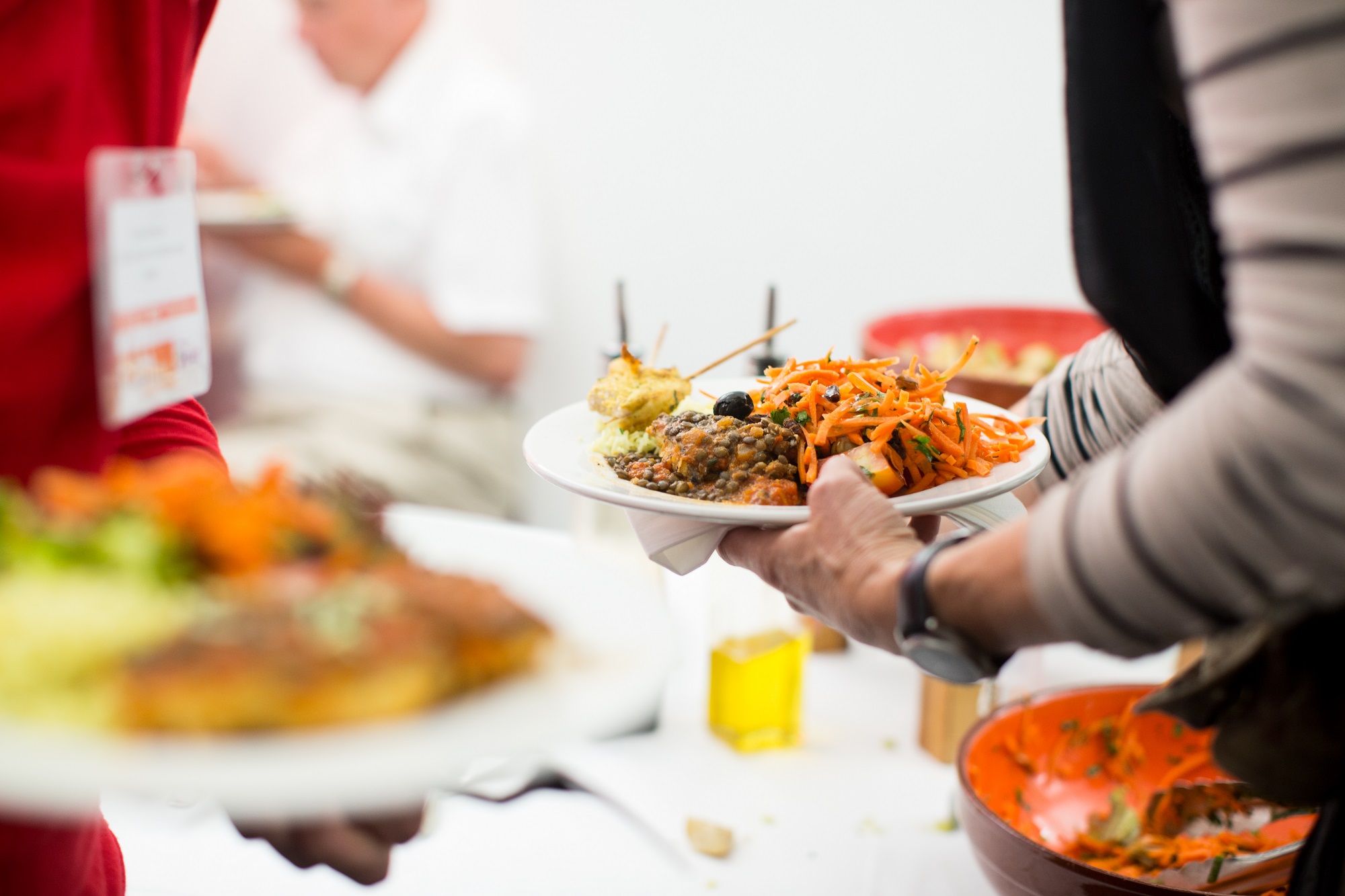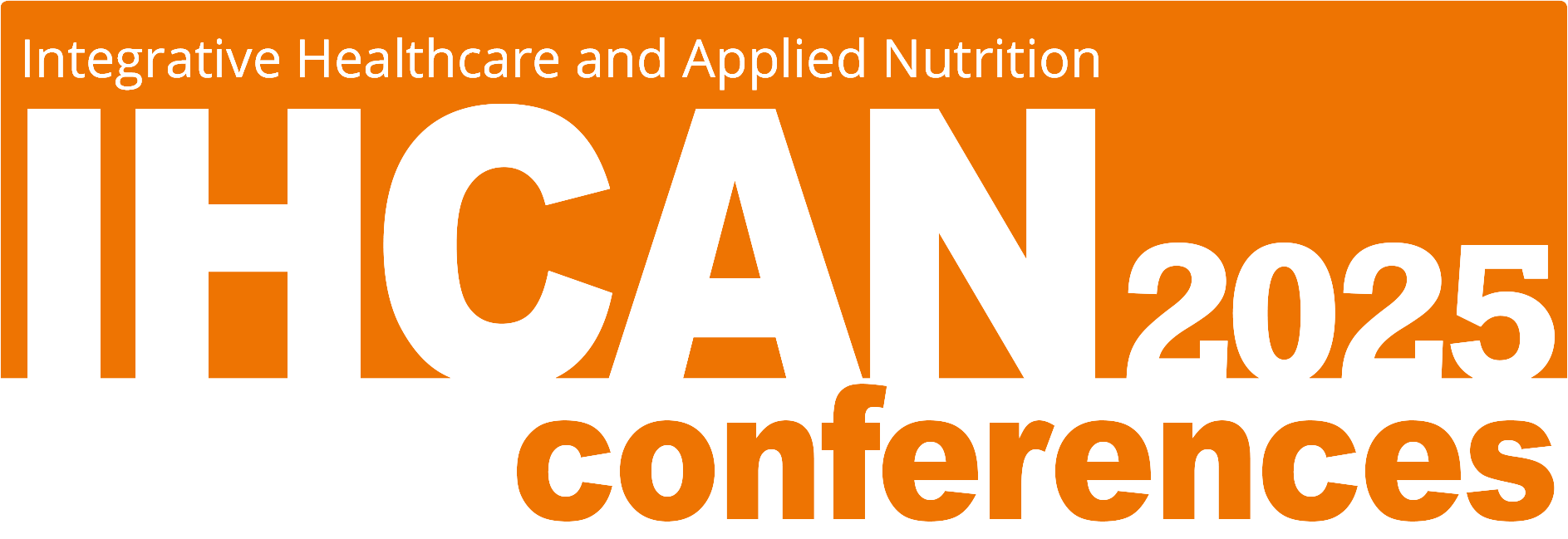Expert speakers
Course gluten-free lunch
Exhibitors
CPD hours
10.00 – 10.30
Registration
Enjoy teas, herbal teas, coffee, and seasonal cut fruit during registration.

10.30 – 11.45
Leo Pruimboom
Intermittent Living; the vaccine against the deleterious, ageing effects of modern life.
Modern life brought us many advantages at the level of the reduction of starvation, clean water, technology, hygiene and medicine. Like all advantages, they also produce negative secondary effects. It is generally known that the level of hygiene we have reached now counteracts against our immune system causing more and more allergies and auto-immune diseases. The same holds for factors like temperature control (temperature hygiene), food control (nutritional hygiene) and other ancient challenges which have disappeared in our society. At the same time new risk factors are part of every day life including smog, pesticides, chronic pollution, sedentary lifestyle and many others. The absence of the ancient challenges and the increase of the new ones have made people more susceptible for multiple maladies, associated with a endotoxemic state and a low grade inflammation.
Recovery of human health demands a new way of thinking; lifestyle changes should prevalent and compliance to these changes should be guaranteed. Intermittent living could be the vaccine against modern life, while it recovers not only the capacity of recovery of homeostatic balances, but also makes humans resilient against modern life’s damaging effects. I will take you on a journey based on evolutionary biology, medicine and psychology with the purpose to show you how cold and heat triggers, fasting and even hypercapnia can recover human health and make us immune against overeating, sedentary lifestyle and chronic psychoemotional stress.
About Leo Pruimboom
Leo Pruimboom is one of today’s most prominent figures in clinical Psychoneuroimmunology (cPNI). He has played a leading role in establishing cPNI on the world stage as a solid scientific discipline with a cutting-edge approach to healthcare. Leo acts as the president of both the European and the International Association of Clinical PNI and his ongoing research has been published in several prominent scientific publications.
He is a journal reviewer and a highly sought after mentor for master theses, many of which have been published. Leo is Postgraduate Director and Professor at the Association of Educational Psychologists in nine different countries. In his previous role as Associate Professor at the University of Girona, Leo has directed master programmes and lectured at several universities around the world.
As a prolific scientific speaker, he has contributed to more than 200 congresses over the past 20 years. Leo is also Scientific Director and Head of Education for the Natura Foundation, a non-profit organisation and leading knowledge centre that aims to share their expertise in nutritional therapy, phytotherapy and clinical psychoneuroimmunology. They host various educational courses that are taught in a number of countries, including the UK. Leo has a background in physiotherapy and physiology and has led many projects advising professional athletes and clubs.

11.45 – 12.15
Refreshments
A short break for delegates to enjoy some refreshments and to network with peers and exhibitors.

12.15 – 13.30
Leo Pruimboom
Intermittent Living; the vaccine against the deleterious, ageing effects of modern life.
Modern life brought us many advantages at the level of the reduction of starvation, clean water, technology, hygiene and medicine. Like all advantages, they also produce negative secondary effects. It is generally known that the level of hygiene we have reached now counteracts against our immune system causing more and more allergies and auto-immune diseases. The same holds for factors like temperature control (temperature hygiene), food control (nutritional hygiene) and other ancient challenges which have disappeared in our society. At the same time new risk factors are part of every day life including smog, pesticides, chronic pollution, sedentary lifestyle and many others. The absence of the ancient challenges and the increase of the new ones have made people more susceptible for multiple maladies, associated with a endotoxemic state and a low grade inflammation.
Recovery of human health demands a new way of thinking; lifestyle changes should prevalent and compliance to these changes should be guaranteed. Intermittent living could be the vaccine against modern life, while it recovers not only the capacity of recovery of homeostatic balances, but also makes humans resilient against modern life’s damaging effects. I will take you on a journey based on evolutionary biology, medicine and psychology with the purpose to show you how cold and heat triggers, fasting and even hypercapnia can recover human health and make us immune against overeating, sedentary lifestyle and chronic psychoemotional stress.
About Leo Pruimboom
Leo Pruimboom is one of today’s most prominent figures in clinical Psychoneuroimmunology (cPNI). He has played a leading role in establishing cPNI on the world stage as a solid scientific discipline with a cutting-edge approach to healthcare. Leo acts as the president of both the European and the International Association of Clinical PNI and his ongoing research has been published in several prominent scientific publications.
He is a journal reviewer and a highly sought after mentor for master theses, many of which have been published. Leo is Postgraduate Director and Professor at the Association of Educational Psychologists in nine different countries. In his previous role as Associate Professor at the University of Girona, Leo has directed master programmes and lectured at several universities around the world.
As a prolific scientific speaker, he has contributed to more than 200 congresses over the past 20 years. Leo is also Scientific Director and Head of Education for the Natura Foundation, a non-profit organisation and leading knowledge centre that aims to share their expertise in nutritional therapy, phytotherapy and clinical psychoneuroimmunology. They host various educational courses that are taught in a number of countries, including the UK. Leo has a background in physiotherapy and physiology and has led many projects advising professional athletes and clubs.

13.30 – 14.30
Lunch
Enjoy a three course gluten-free buffet lunch, with time to network with peers and exhibitors.

14.30 – 15.30
Dr Craig Willcox
Secrets of Living Longer (and healthier) from those that have Lived the Longest
A child born in London today has about a one-in-three chance of living to 100. Although good genes give one an excellent head start on the path to centenarian status, healthy or “successful” ageing is a life-long journey that requires wise decisions, as well as a little luck. Remaining healthy and independent, keeping cognitively sharp, and actively engaged with life are common themes when people are asked to talk about their ideal vision of “successful ageing”. Unfortunately, multi-morbidity and medications and weekly visits to the doctor are common in middle-age and beyond. Based upon his three decades of research on the world`s longest lived people, Dr. Willcox will talk about the relative importance of genes vs environment (including newly discovered longevity genes), the most effective “anti-ageing” strategies, and risk factor modelling that can predict ones healthy ageing trajectory.
About Dr Craig Willcox
Donald Craig Willcox, Ph.D. holds Professorships in Gerontology & Geriatric Medicine at Okinawa International University and University of Hawaii. He is Co-Principal Investigator of the Okinawa Centenarian Study and a Co-Investigator with the Kuakini Honolulu Heart Program studies of healthy ageing and longevity.
Currently focused upon nutritional, epidemiological and epigenetic approaches to successful ageing, and part of the research team that identified a gene important for human longevity (FOXO3), he is now working on bioactive substances that activate FOXO3 and its protective mechanisms. With nominations for Marquis’s Who’s Who in Healthcare and Medicine and Who’s Who in the World, Dr. Willcox is a much sought after speaker and consultant with regards to research and development of nutraceutical and cosmeceutical products that focus on healthy ageing.
15.30 – 16.00
Refreshments
A short break in the presentation for delegates to enjoy some refreshments.

16.00 – 17.00
Dr Craig Willcox
Secrets of Living Longer (and healthier) from those that have Lived the Longest
A child born in London today has about a one-in-three chance of living to 100. Although good genes give one an excellent head start on the path to centenarian status, healthy or “successful” ageing is a life-long journey that requires wise decisions, as well as a little luck. Remaining healthy and independent, keeping cognitively sharp, and actively engaged with life are common themes when people are asked to talk about their ideal vision of “successful ageing”. Unfortunately, multi-morbidity and medications and weekly visits to the doctor are common in middle-age and beyond. Based upon his three decades of research on the world`s longest lived people, Dr. Willcox will talk about the relative importance of genes vs environment (including newly discovered longevity genes), the most effective “anti-ageing” strategies, and risk factor modelling that can predict ones healthy ageing trajectory.
About Dr Craig Willcox
Donald Craig Willcox, Ph.D. holds Professorships in Gerontology & Geriatric Medicine at Okinawa International University and University of Hawaii. He is Co-Principal Investigator of the Okinawa Centenarian Study and a Co-Investigator with the Kuakini Honolulu Heart Program studies of healthy ageing and longevity.
Currently focused upon nutritional, epidemiological and epigenetic approaches to successful ageing, and part of the research team that identified a gene important for human longevity (FOXO3), he is now working on bioactive substances that activate FOXO3 and its protective mechanisms. With nominations for Marquis’s Who’s Who in Healthcare and Medicine and Who’s Who in the World, Dr. Willcox is a much sought after speaker and consultant with regards to research and development of nutraceutical and cosmeceutical products that focus on healthy ageing.
17.00
Day finish
The ‘Ageing’ IHCAN Conference will finish at 17.00
This conference is now sold out
This IHCAN Conference in collaboration with BANT is now completely sold out.
*To add yourself to the waiting list, click the button below.*
Book your place before it's too late...
Day(s)
:
Hour(s)
:
Minute(s)
:
Second(s)
